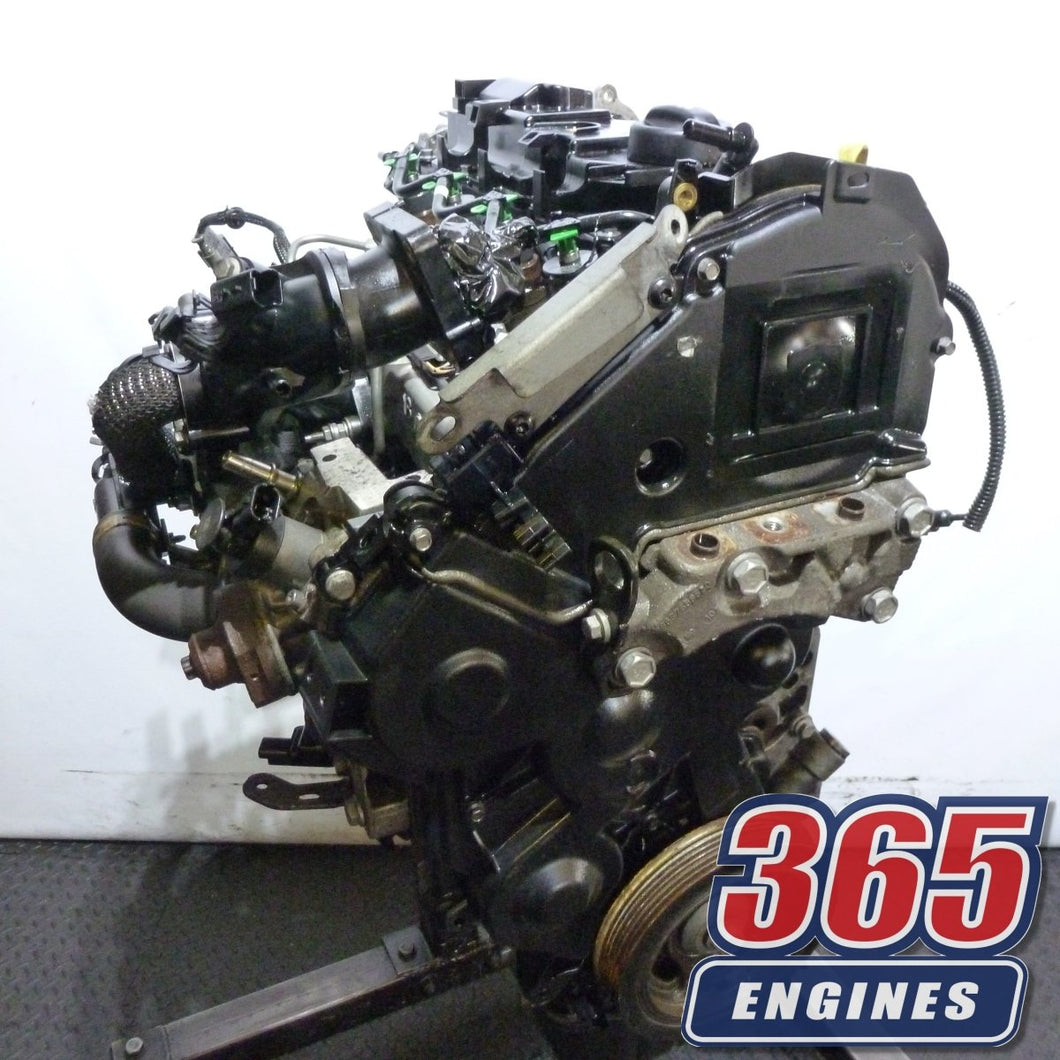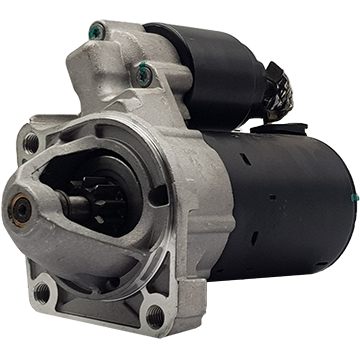Discover the Latest Ford Fiesta Engine Upgrades for Enhanced Power
Discover the Latest Ford Fiesta Engine Upgrades for Enhanced Power
Blog Article
The Future of Engines: Innovations Driving Lasting Power Solutions
As the automotive market navigates the vital change in the direction of sustainability, the future of engines is increasingly specified by groundbreaking technologies. Electric engine improvements, alongside encouraging developments in hydrogen gas cells and biofuels, are improving the landscape of power solutions. The appearance of hybrid systems better complicates this development, presenting both possibilities and difficulties to decrease discharges effectively. Coupled with the combination of expert system in engine design, these technical strides raise crucial inquiries regarding their long-lasting viability and effect on standard paradigms. What might this imply for the sector and customers alike?
Electric Engine Advancement
The development of electric engine developments represents a crucial change in the automotive and aerospace sectors, driven by the immediate demand for lasting alternatives to nonrenewable fuel sources. This shift is defined by substantial innovations in battery innovation, power electronics, and electrical motor style, which jointly improve the performance and performance of electric engines.
Current advancements have actually brought about the production of lighter, extra energy-dense batteries, such as lithium-silicon and solid-state batteries, which promise longer ranges and shorter billing times. In addition, enhancements in electric motor efficiency, such as the use of irreversible magnets and progressed cooling systems, enable electrical engines to run successfully under varying conditions. These enhancements not just enhance car efficiency but additionally add to a reduction in total energy consumption.
Moreover, the assimilation of advanced software application algorithms has optimized power management in electrical vehicles, permitting regenerative braking and predictive billing techniques. As producers increasingly welcome electric propulsion, the aerospace and vehicle industries are witnessing a standard shift towards greener technologies. This advancement not only fulfills regulatory needs however likewise straightens with consumer choices for environmentally friendly transport services, strengthening electric engines as a foundation of future sustainable mobility.
Innovations in Biofuels
As the automobile and aerospace sectors increasingly prioritize lasting energy sources, improvements in biofuels emerge as a corresponding option to electrical engines. Biofuels, stemmed from organic products such as plants, waste, and algae, offer an ingenious method for decreasing greenhouse gas discharges and dependence on fossil fuels.
Current study has actually concentrated on improving the efficiency and sustainability of biofuel production. Second-generation biofuels use non-food feedstocks, lessening competitors with food supply and reducing environmental effect. Furthermore, innovations in artificial biology have allowed the design of microbes to produce biofuels better, causing greater returns and reduced manufacturing expenses.
Furthermore, the advancement of drop-in biofuels permits seamless integration into existing infrastructure, allowing a smoother change for sectors typically reliant on fossil gas. ford fiesta engine. These fuels can be used in present engines without modifications, facilitating their adoption across different industries
Investments in biofuel innovation, together with encouraging plans, are important to drive development and scalability. As the global area seeks to battle environment modification, biofuels provide a pragmatic, immediate remedy that lines up with the overarching goal of sustainability in transportation and air travel.
Hydrogen Gas Cell Technology
An expanding number of researchers and companies are discovering hydrogen gas cell innovation as a feasible alternative to standard source of power in transportation and power systems. This technology transforms chemical energy from hydrogen into electricity via an electrochemical response, with water as the only byproduct, making it an eco-friendly option.
The core of hydrogen gas cells is the gas cell pile, where hydrogen molecules are divided right into protons and electrons. The circulation of electrons produces electrical power, while protons move via a membrane to incorporate with oxygen from the air, developing water. This process results in high performance and low exhausts, positioning hydrogen gas cells as a crucial gamer in the transition to lasting energy.
Considerable developments have actually been made in enhancing the resilience and performance of fuel cells, together with lowering costs with cutting-edge manufacturing methods. Furthermore, the advancement of hydrogen manufacturing approaches, such as electrolysis powered by renewable resource resources, boosts the sustainability of the overall system. As framework for hydrogen refueling expands and production methods become a lot more reliable, hydrogen fuel cell innovation holds great pledge for decarbonizing numerous industries, consisting of sturdy transport and stationary power generation.
Hybrid Equipments and Their Impact
Hybrid systems stand for a significant evolution in sustainable engine technology, merging traditional internal burning engines with electrical propulsion to maximize power performance and lower discharges (ford fiesta engine). This dual method allows vehicles to make use of both power resources, enabling better adaptability in power usage and lowering reliance on fossil gas

Along with environmental benefits, crossbreed systems use customers a feasible shift towards fully electrical lorries. They alleviate array stress and anxiety by integrating the benefit of gasoline with the advantages of electrical propulsion, making them an appealing option for a bigger target market. click here now As manufacturers buy hybrid innovation, the development of advanced battery systems and lightweight products continues to boost performance. On the whole, crossbreed systems stand for a critical action towards attaining sustainable transportation and addressing the immediate need for eco friendly power remedies.
The Duty of AI in Engine Design
Leveraging sophisticated formulas and equipment knowing strategies, the automotive market is significantly integrating expert system (AI) into engine style processes. AI enhances the effectiveness and performance of design by examining vast datasets to recognize optimal configurations and efficiency criteria. This capacity allows engineers to replicate numerous operating problems and predict engine habits under numerous circumstances, substantially reducing the time and cost related to typical prototyping methods.
Additionally, AI assists in the advancement of innovative products and burning procedures customized for sustainability. By enhancing gas efficiency and minimizing emissions, AI-driven designs align with global initiatives targeted at minimizing the carbon footprint of vehicle engines. Equipment understanding algorithms can also forecast maintenance needs, causing enhanced dependability and durability of engine elements.
Furthermore, AI is important in the integration of electrification technologies, such as crossbreed systems, where it can maximize battery administration and energy recovery processes. As the industry relocates in the direction of more sustainable power solutions, the role of AI in engine layout comes to be progressively important, driving development and enhancing the efficiency of future engines. Inevitably, the partnership between AI and engine layout advertises a brand-new age of smarter, cleaner, and more reliable auto modern technologies.

Conclusion
Finally, the future of engines is being formed by a visit this website convergence of ingenious modern technologies that pop over to this web-site prioritize sustainability. Electric engine developments, biofuel advancements, hydrogen gas cells, and crossbreed systems jointly add to a significant reduction in emissions and environmental effect. In addition, the assimilation of synthetic knowledge in engine style improves effectiveness and efficiency. These transformative remedies underscore a commitment to creating a cleaner, more sustainable automobile landscape, eventually profiting both society and the setting.
Electric engine advancements, along with encouraging advancements in hydrogen fuel cells and biofuels, are improving the landscape of power remedies. In addition, enhancements in electric motor efficiency, such as the use of permanent magnets and progressed cooling down systems, allow electric engines to run effectively under differing problems. By enhancing fuel performance and minimizing emissions, AI-driven styles straighten with worldwide efforts aimed at minimizing the carbon footprint of automotive engines. As the sector moves in the direction of more sustainable power remedies, the function of AI in engine design ends up being progressively essential, driving technology and improving the performance of future engines. Electric engine innovations, biofuel growths, hydrogen fuel cells, and crossbreed systems collectively add to a substantial reduction in exhausts and environmental influence.
Report this page